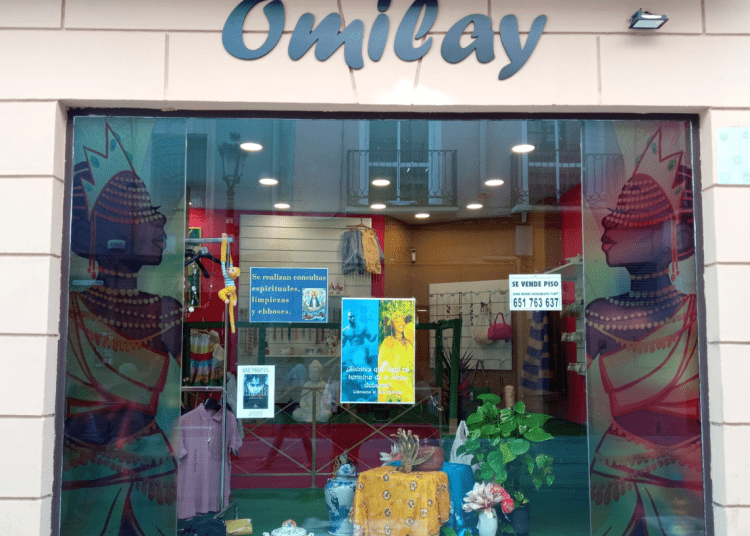By Nayara Ortega Someillán
El Tubo is one of the must-see sites in the center of Zaragoza. This is the name given to the set of narrow and labyrinthine streets that merchants have been in charge of filling with bars, shops of all kinds, discos and specialized restaurants. Some of these places are many years old. The name of the place dates from 1930, when it was named allegory of its structure; since then its commercial popularity has been maintained.

The mornings are usually very calm. The occasional curious tourist transits through El Tubo, local people who use it as a shortcut to get to Plaza del Pilar and the workers of the various shops established in the surroundings.
Nothing compared to nighttime. When the sun goes down, their locals and tourists begin to drop by for tapas, taste wines and listen to good music.
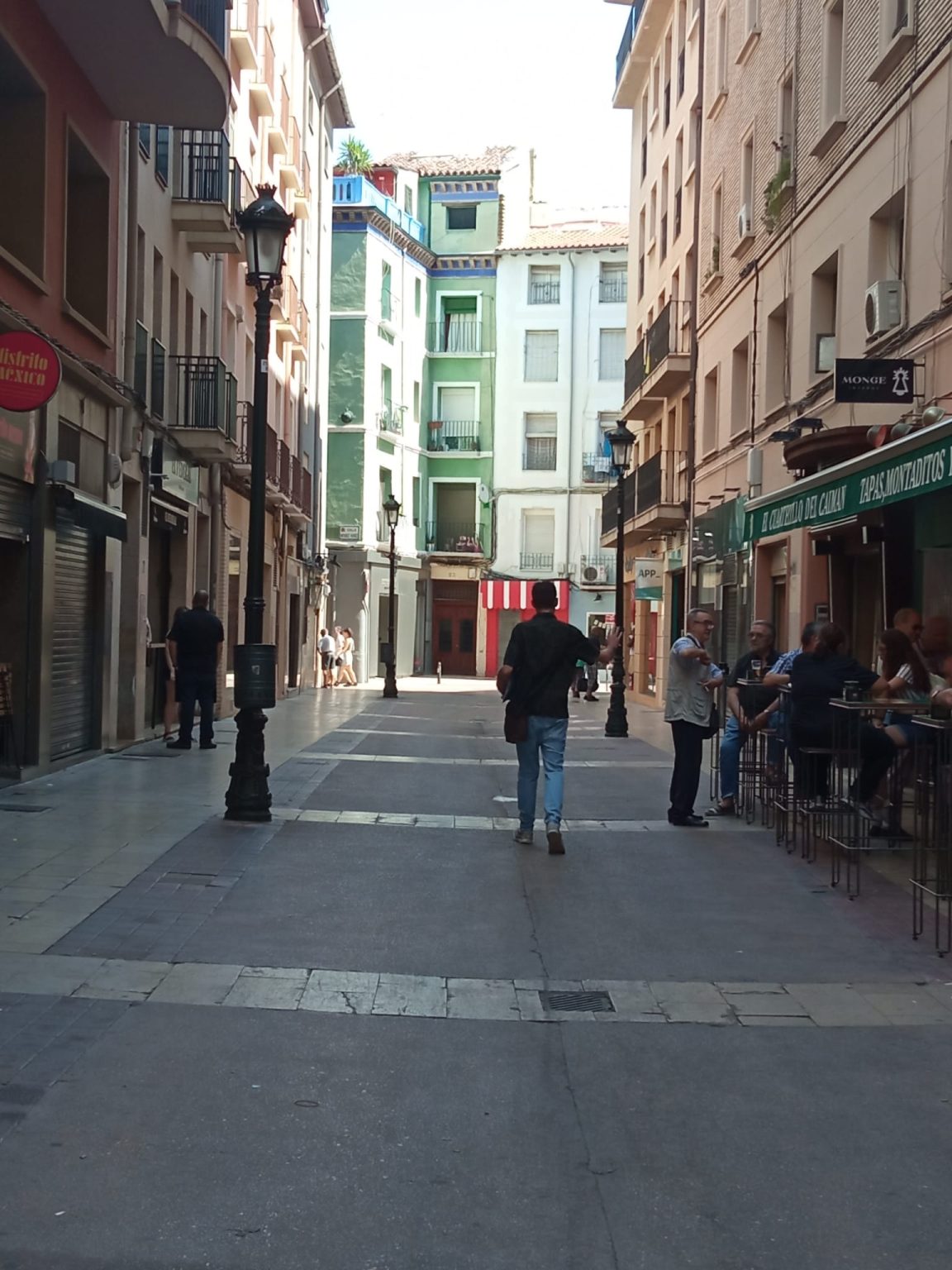
On a corner of El Tubo, at number 32 Casto Méndez Núñez Street, I met Regla Yuneiky Santamaría Pruna. This Havana woman emigrated twenty-three years ago and has always lived in Aragonese land, she tells me. At forty, she is the owner, together with her Spanish husband, of the first and only store of Afro-Cuban religious articles in Zaragoza.
We agreed to meet at eleven. I was there at that time, punctually ready to listen to her story. I was expecting a very smiling, empowered woman, with the appearance of a short girl. She actually looks great for her age. Above all, she projects a tremendous youthful attitude.
I found out about this place for the first time thanks to a link that a friend gave me. “A Cuban santera in the heart of Zaragoza,” read the headline of the news item in the Heraldo de Aragón. Although I come from a purely Protestant religious upbringing and have stayed away from scenarios related to Afro-Cuban religion, despite my ignorance regarding many issues, I remember knowing such a detail made me think: “That’s great! Another little corner to return to Cuba when I get nostalgic.”

The space is cozy. Regla tells me that it used to be a clothing store. She and her husband rented it in very good condition. They almost didn’t have to remodel it. Of course, from where I was, I did not imagine that the place would have a basement; Regla had to fix it up a bit and accommodate it for her Santeria work. Make it more intimate. I love that it has big windows. From the outside you can see the typical costumes, conches, colored necklaces, squashes, vases and accessories dedicated to the different deities.
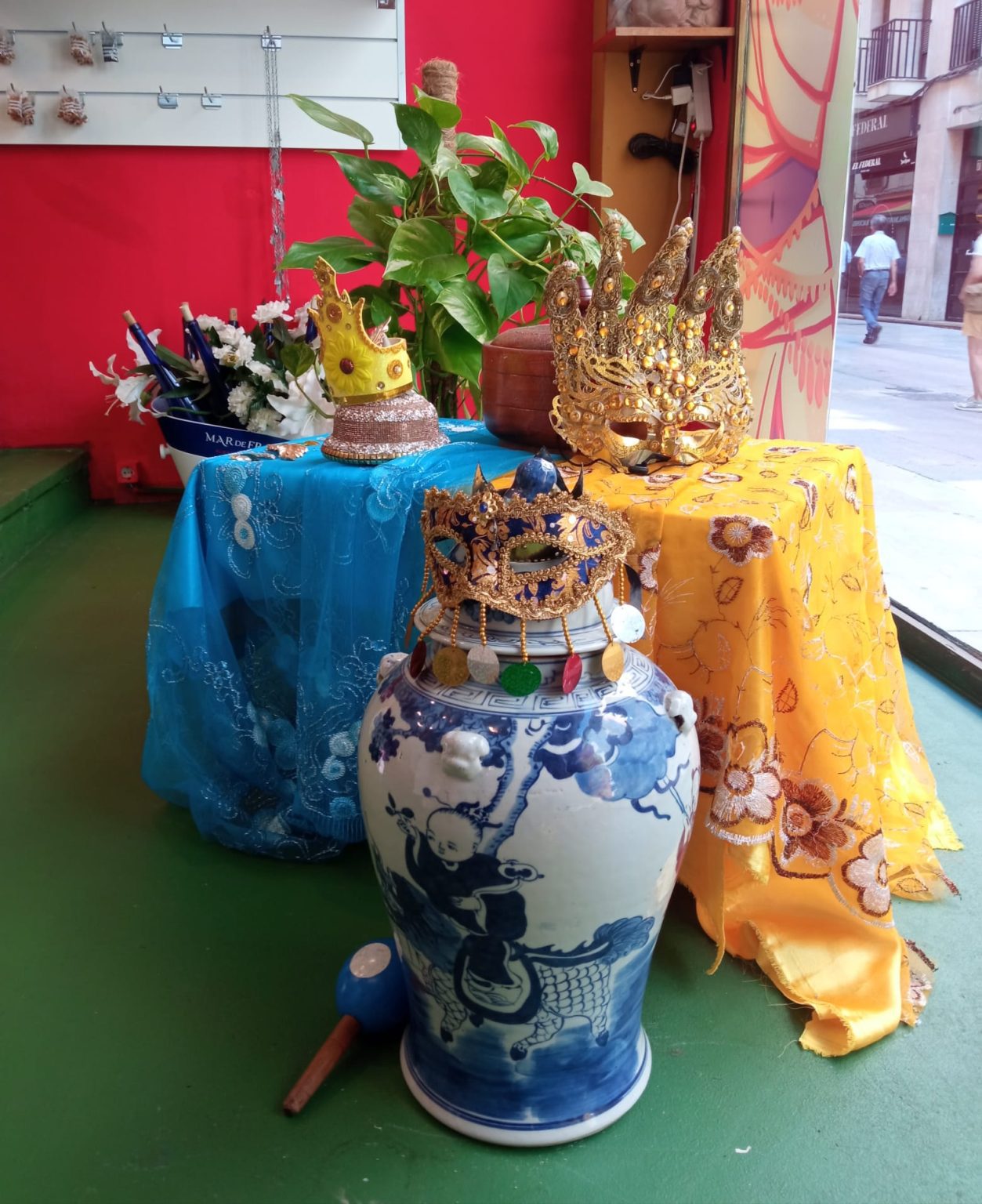

Omilay opened its doors just a year ago. Despite the fact that the public at first was the Cuban emigrant population, Regla says she is amazed every day by the many Spaniards who come by interested in the Yoruba religion and come into the store. She also has Nicaraguan, Argentine, and Brazilian clients. I confess that I am ignorant about some terms and practices.
She immediately tells me that she has been a follower of Yemayá1 with Orisha oko2 for sixteen years. She has been familiar with the Afro-Cuban religion since she was a child. To her saint, she proudly tells me, she owes her entire life: she has given her health, a lot of patience, stability and a serenity in her impressive life, which she did not previously have. She also highlights the transparency with which she assumes her faith and her work. She takes the opportunity to explain to me that in her religion the energies and the search for the ancestral are fundamental.
As we talk, I notice the passers-by stopping on the other side of the window. They observe the mannequins in traditional Yoruba costumes and some of them are startled when they discover what it is about, as if they already knew the religion beforehand. Regla tells me about the joy she finds in the fact that Afro-Cuban religion and culture branch out and merge with other idiosyncrasies. I interrupt her to tell her that, in effect, her business not only has a religious-commercial purpose, but that it is also a little piece of Cuba in this Spanish city, and that she, beyond her job, is an ambassador and a key reference to communicate here our existence and, above all, our identity.

We stopped for a few minutes; a customer arrives.
I ask her about the place’s offers. In Omilay there are many religious items: bracelets, necklaces, palm oil, cocoa butter, amulets. Regla sells them to order. She has maintained as a hallmark of her venture that most of the products come from Cuba, mainly due to the quality of some of them, such as the crushed egg shells, smoked fish and smoked jutía. They also do development masses, spiritual masses, research masses, cleanses, ebboses.3
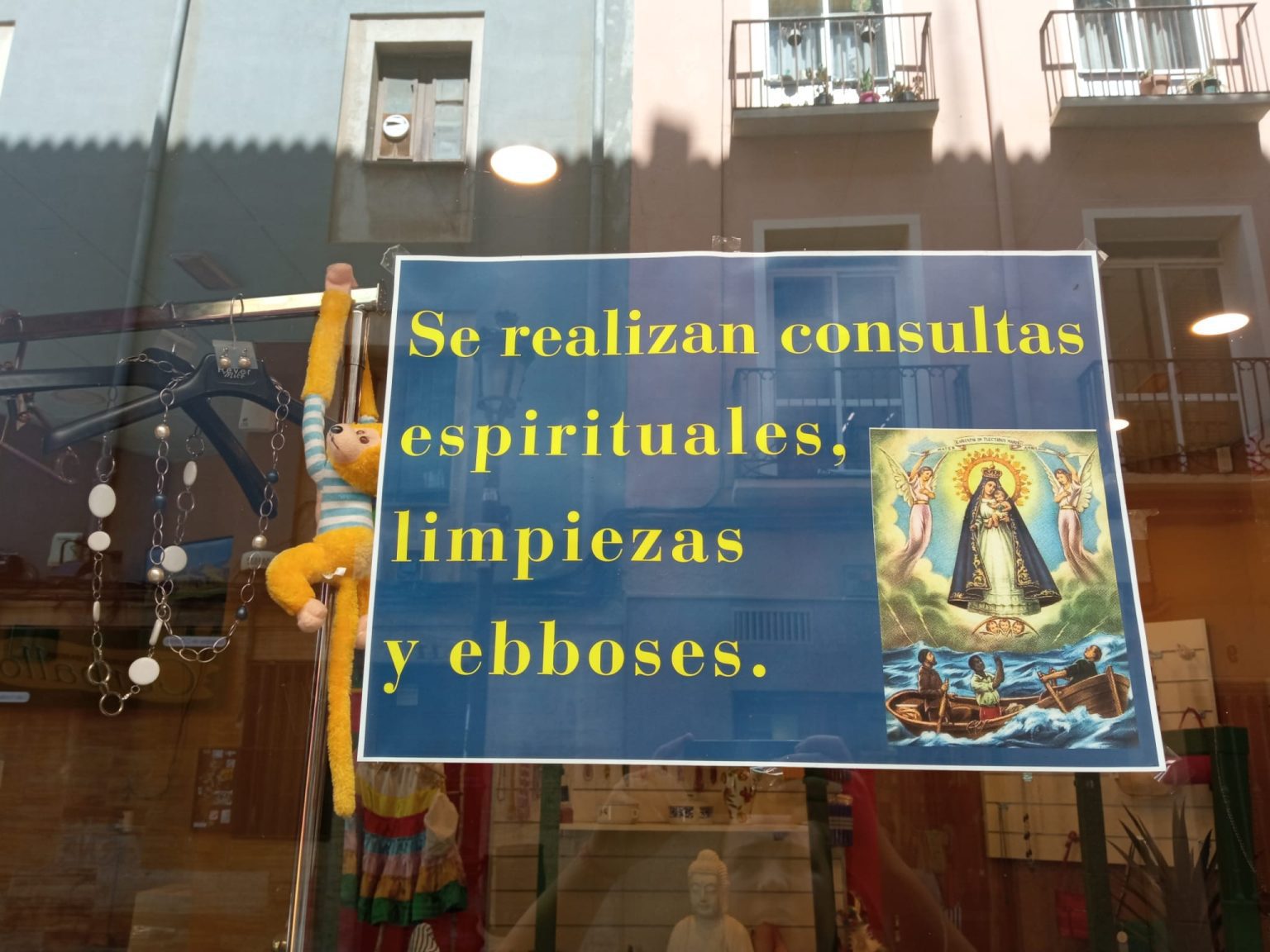
They also prepare omieros4 to keep bad energies at bay. She once again emphasizes her desire that everyone who comes to this house find individual peace, as she has done. “We do not seek evil for anyone.”
We went on to talk about the initial months. Always hard. The Spaniards are traditional and very devoted to Catholicism. A place of Afro-Cuban religion in that place of parties and tapas interfered in the traditional dynamics of the place. Little by little, Regla started gaining followers and educating people in the positive spirituality that her work entails. She had to dilute with actions the idea that Santeria was a “bad” practice. Teach about the syncretism between the Yoruba and Catholic religions. Demonstrate that her religion is sacrifice, faith and love; apart from false opinions and distortions. All religions are one, it is the same God for all, she concludes.

I know that this Cuban woman has a very ambitious vision of the future. In the few minutes we shared, I admired her optimism and determination. Her charisma conveyed her confidence in herself and in those who helped her keep that child-business afloat: her mother and her husband. I decide then to ask her how she saw that panorama in five years. She sighs with the air of a dreamer: “I see myself super expanded throughout Aragón. And happy that people come to visit me, that they can solve their problems, be it health, love, whatever. I would like to be a very firm cultural reference of what is Cuban within this Spanish province.”
I silently dedicate an ashé and an amen to her.
The conversation drifts a bit towards musical tastes: bachata, salsa. We chatted about her previous work stage in the hospitality industry and as a geriatrics assistant, about how Cubans here tend to be taken for Dominicans. We joke about it. She tells me that she has tickets for the concert of Romeo Santos, who will finally perform in Zaragoza. She seems so excited about it. We complain a bit about how expensive certain sectors of life are here and about the high taxes she has to pay as a freelancer. She recognizes the high level of responsibility and expense that comes with having a business like Omilay, but at the same time she enjoys being her own boss.

Before I leave, the last question occurs to me. Why Omilay? Omilay is the name of Regla’s saint. It means water and conch. During a vacation in Cuba, it was predicted that she would have that business. As of that moment she decreed that her future store would have that name. She likes the curiosity it arouses and, of course, it works for her on a marketing level.


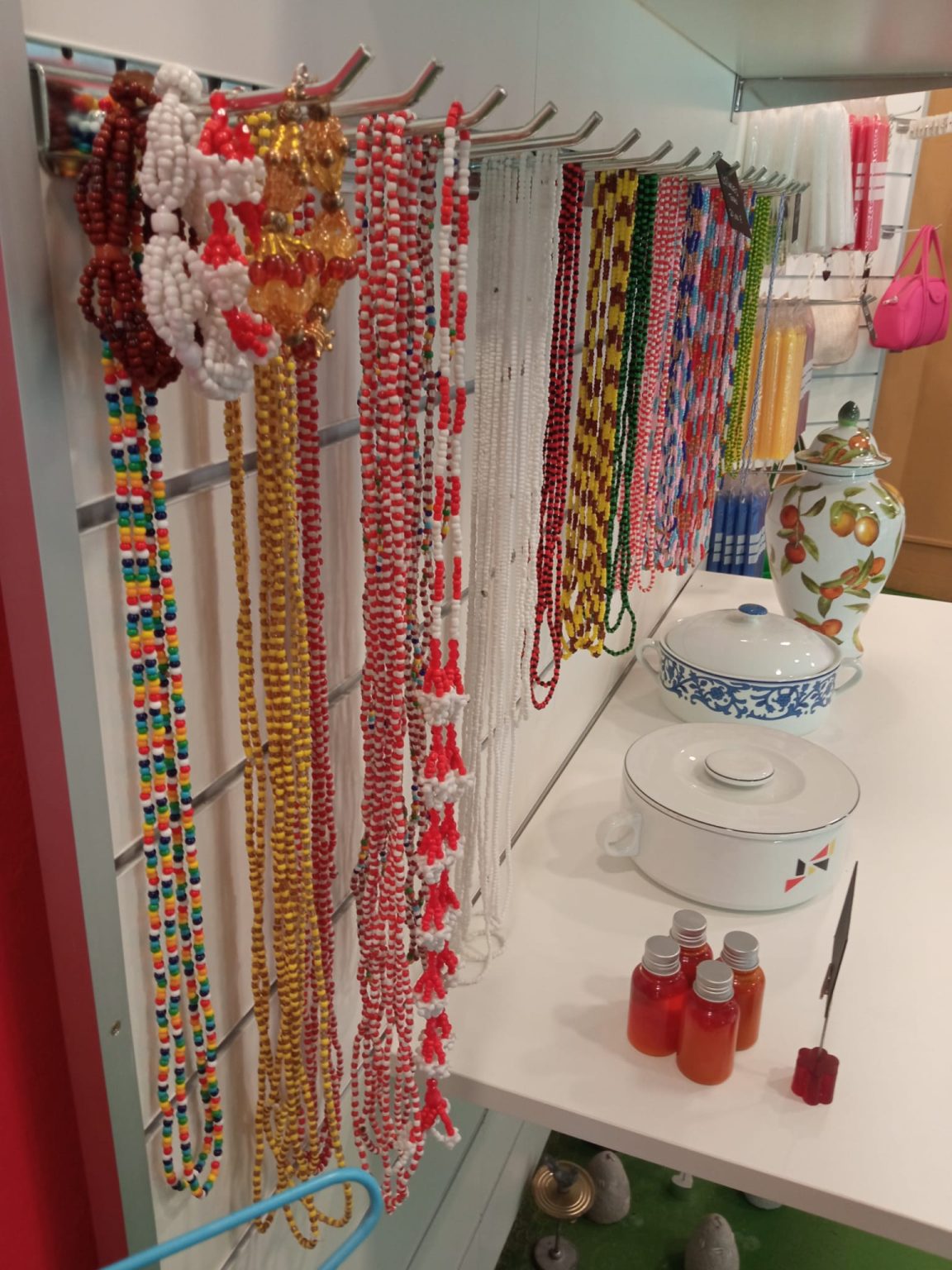
At that moment Lázara, her mother, arrives with a cigar in her hand and a purple sack skirt that represents Babalú Ayé, or San Lázaro.5 I introduce myself and say goodbye. There is a person waiting outside. A consultation that I have now, she clarifies for me. From the woman’s Spanish with an accent, I sense that she is not a Spanish speaker. They come from many parts of the world, I think, and leave pensive. I have spent half an hour in the small Cuba that these women have built. I am really liking the idea of tracing the stories of Cuban men and women in this, my new city.
I smile satisfied.
________________________________________
Notes:
1 Yemayá, deity of the sea. She represents fertility, motherhood, the origin of life, synthesized in the salty water of the seas. She syncretizes, in Cuba, with Our Lady of Regla, protector of sailors.
2 Orisha Oko, deity of agriculture and the countryside, represents the land, agricultural work and crops. She syncretizes with San Isidro Labrador.
3 The ebbó is a Santeria work or ceremony that can be an offering or a sacrifice. They are to refresh, fall in love, fulfill promises to the Orishas.
4 Omiero is a herbal preparation used in purification rituals.
5 Babalú Ayé or San Lázaro is one of the most revered saints in Cuba, considered a protector of the sick and, above all, of skin diseases.

